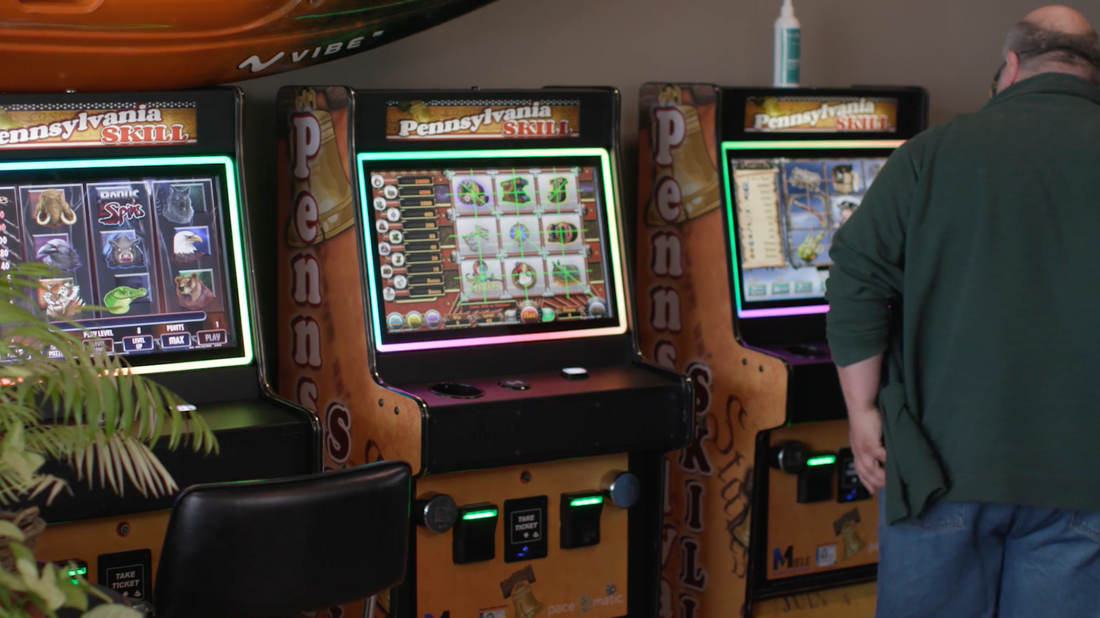Running any small business is difficult, but for restaurant and bar owners, the last few years have been especially cruel.
Many, sadly, didn’t make it out the other side of the pandemic. Then came the worker shortage that is still pummeling businesses today. And now, the triple threat is inflation.
Talk to any restaurant owner and they can tell you how much more expensive everything they need to run their business has become in 2023.
And they keep their fingers crossed that they don’t need to pay for any improvements or repairs.
One of the saving graces for many restaurants and bars, along with fraternal and veterans groups and volunteer fire companies, is skill games.
Locations can earn important supplemental revenue from these games.
One restaurant owner in the state says he provides 100% paid dental and vision for his employees.
He also recently started a 401K retirement plan for them with a company match. He couldn’t do any of that without skill game revenue.
Other restaurants have added staff, put on expansions and purchased much-needed equipment because of skill games.
Importantly, there are places that say without skill games money, they would be forced to close their doors. Closures are serious problems.
In 2022, about 631,000 restaurants operated in the United States, according to Technomic, a restaurant research firm.
Alarmingly, that is about 72,000 fewer than in 2019, and Technomic does not see that trend changing for years.
The picture in the commonwealth is no exception.
Surveys of Pennsylvania restaurants show that many say they have had no choice but to increase menu prices even though they know that is hard on their customers.
That is why having the diversity in their businesses of selling food, drinks and having skill games for people who want to have some fun is so important.
The way skill games help a business bottom line is simple. People come in to play the games and lengthen their time at the restaurant.
As they play, they get a bite to eat and a beverage or two. If they win a little money, they may be bigger tippers.
The location gets a percentage of the money that people put into the machines. And I want to make one thing very clear: Skill games are not, never have been and never will be, competition to casinos or the lottery.
The hundreds of members of Pennsylvania Taverns and Players Association, PA TAP, made up of hard-working small business owners and members of fire companies, VFWs, American Legions and fraternal clubs, will echo that sentiment.
Someone who goes to their corner bar or restaurant to hang out with friends and play a few skill games is not choosing that activity over a casino.
It is an entirely different atmosphere. For one thing, casino gambling is all chance and luck. Your odds of winning are the same every time you play.
With skill games, you could win every time if you have skill and patience. As for the lottery, there is an impact — a positive one.
I own a small grocery store chain in the state, and when we added skill games a few years ago, our lottery sales jumped up. Our experience is shared by many establishments.
Pennsylvania lawmakers should understand how important skill games are to small businesses and pass a measure that further regulates the games and would provide additional tax revenue for the state as well as county and local governments.
I am told it would mean $200 million in tax revenue for the state each year. It also would end the illegal gambling that goes on in mini-casinos and elsewhere.
If we want our state economy to improve, we need to help small businesses that have limited ways to earn revenue.
Skill games do just that.
Doug Sprankle is president of the Pennsylvania Taverns and Players Association, organized to help protect small businesses, fraternal clubs, fire halls and veterans’ organizations in these challenging times.

